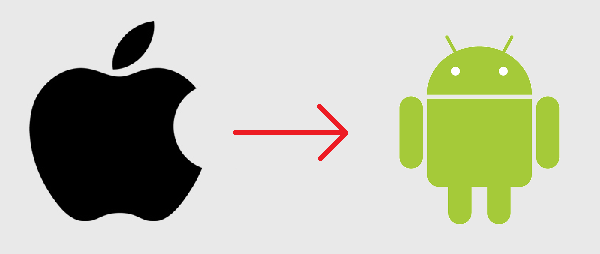 Ritchie Djamhur is a macchiato-addicted IT Buyer based in Sydney, Australia and also posts his thoughts on technology, music and anything else that keeps him up at night on www.ritchiesroom.com.
Ritchie Djamhur is a macchiato-addicted IT Buyer based in Sydney, Australia and also posts his thoughts on technology, music and anything else that keeps him up at night on www.ritchiesroom.com.
The iOS Family
My name’s Ritchie and I am a phoneaholic, of the smart variety. I’ll admit it, on most nights I have my smartphone safely tucked under my pillow, in case I stir restlessly out of sleep and feel compelled to check Facebook updates, Twitter messages and lists, LinkedIn news, or my WordPress stats. Sound familiar to any readers?
Up until recently, I had not strayed far from the iOS family. I have owned a few iterations of the iPhone, and have seen its evolution in hardware along with the massive growth of the app store. And for the most part, the iPhone has fulfilled my needs, and indeed surprised me with functions that I didn’t realise I could do with.
iTunes makes upgrading your phone terribly easy. When the next version of an iPhone is released, you simply back up your old phone, connect and register your new iPhone, and everything, including settings, email, photos, and messages will be loaded onto your fresh iPhone. That upgrade path makes it hard to break the cycle and look beyond the iPhone at alternatives that may in fact be better suited to your needs.
The iPhone 4 is a great smartphone, and it’s always been a reliable partner in my business and leisure life. The ability to print wirelessly, read books, take casual photos, use social networking apps with ease, play some great games during downtime and use Facetime to see my extended family at a moment’s notice have all made the iPhone highly regarded in my household.
There are a few things that have made my eyes wander of late, and I realised that unless I wanted to jailbreak my phone, there were a few things that I couldn’t do efficiently. For example, turning WiFi and bluetooth on/off, changing brightness or orientation settings take a fair few steps within the settings panel.
On the other hand, widgets are a standard feature on Android phones, so I could see a good reason to move across just because of that instant access to functions I wanted regularly. But could an Android phone match or exceed what the iPhone and its associated ecosystem has delivered to me over the years?











I only eat mass marketed, low quality food. Each week, I pick a fast food restaurant and only eat all of my meals there. In fact, I don’t just eat there at meal times. I snack there. In fact, I snack there all day, everyday, even when I don’t really need or want to eat. I’ve been won over by the ecosystem of McDonald’s menu and ambiance, but the consumer experience of Burger King could tempt me back. The dumbest guy I know believes that if you’re not really hungry then you shouldn’t even at a meal or snack, and if you are going to eat then you should eat well prepared food made of high quality ingredients. He is such an idiotic jerk, and I think his elitist views are way out of touch about the evolution of eating. What are we, farm hands? He’s probably tricked himself into thinking that fast food ever made anybody sick.
Forgive me for the assumption, but reading the article, I can’t help but feel that either the author has hardly touched his iPhone, or he never owned an iPhone at all.
For instance, brightness. The fastest way to adjust brightness on an iPhone is to turn on Automatic Brightness in the settings, then switch the phone off and then back on. Upon unlocking, the brightness level will change to that which suits the current viewing environment. Also, a side perk of that setting is that it will automatically jack brightness up to a higher level as soon as a the phone is exposed to a brighter light source regardless of what state it is in.
you my friend didnt understand what he was saying, and yes i do have an iphone , but he’s talkimg bout any android device can adjust brightness to what “you” want it to be from the home screen as well set it to auto even ppc2003se had that, if you love apple, great, no need to try and talk down cause you like people to make choices for you. lets say you want to lower the brightness to a setting lower than the automated setting . choice is not so difficult to understand
If the Nokia N9 isn’t coming to my carrier, I will get the iPhone5 on contract and the N9 bought cash. Nobody needs to ask me about phones for the next two years then. :)
Great article! Looks like a converted Android user. By the way, you are not alone in your insights. Just look at the growing number of Android users from all over the world.
Android is the wave of the future. They have already reached the level of providing the same functionality of the iPhone, and more, like the widgets. The difference is, android smartphones are offered at more affordable prices than iPhones. The market would definitely choose the more superior product, in terms of quality and pricing.